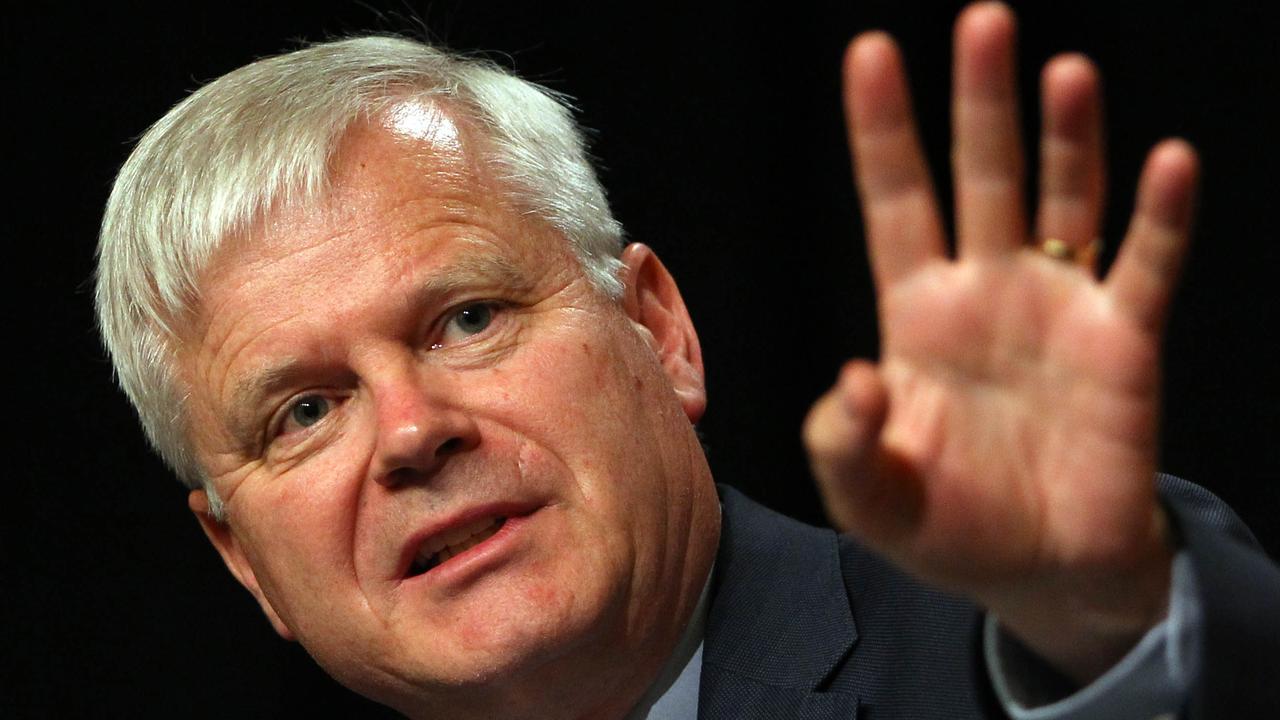A leading economist has weighed into the increasingly heated debate over Australia’s housing crisis, calling for a slowdown in immigration to allow time for supply to catch up with demand.
Chris Richardson, independent economist and former Deloitte Access Economics partner, wrote in an op-ed for The Australian Financial Review on Tuesday that “two wrongs don’t make a right” but with housing and migration colliding, “one will have to give”.
“This is the article I never wanted to write,” Mr Richardson said on X.
In the article, he stressed immigration “gets a bad rap” and Australia’s record population growth was not the problem, “at least, not in isolation”.
“But housing affordability is the worst it’s ever been, and I’m starting to think we may need to do dumb things on migration policy simply to ease the impact of the even dumber things we’ve done in housing,” he said.
Australia’s net overseas migration came in at a record 500,000 in 2022-23, more than double the 235,000 forecast in last October’s budget, largely driven by a surge in international students.
At the same time, the country is facing an unprecedented housing crisis — rental availability and affordability are at record lows, while soaring house prices and interest rates are pushing the dream of home ownership further out of reach for ordinary Aussies, or forcing existing borrowers to the wall.
Mr Richardson pointed the finger at several causes of the supply shortage, including stubborn local councils and slow building approvals, but said even if “we get perfect housing policies tomorrow” it would take at least a decade to “get housing prices back down to sensible multiples of Australian wages”.
“Right now we’ve blown up the ‘everything else’ that should accompany a strong migration intake,” he said.
“Australia’s overall population was growing by almost a Canberra a year ahead of Covid, but even then we weren’t adding anything like a Canberra a year worth of well-located housing, let alone schools, hospitals or roads.”
The solution was two-fold, he argued — starting with accelerating “baby steps already underway” to get more housing built. “Second, however, we’ll also need to wind back migration — including student numbers — for a time,” he said.
REA Group economist Cameron Kusher praised Mr Richardson for putting down “some sensible thoughts about temporarily slowing demand from overseas for housing in order to get a better balance”.
Centre for Independent Studies chief economist Peter Tulip said, “[Chris Richardson] is always smart. He argues that because we have a housing policy that unnecessarily impoverishes us all therefore we need an immigration policy that unnecessarily impoverishes us all to compensate.”
Mr Richardson joins a growing number of mainstream experts calling for a slowdown in migration, even as the federal government doubles down on “big Australia”.
Last week, Immigration Minister Andrew Giles told The Age the country needed skilled migrants to build homes.
“I think the biggest driver for increasing [housing] demand and one of the key aspects is, of course, one of the skill shortages that we’re experiencing is the skills we need from migrants to build the houses in Australia,” Mr Giles said.
AMP head of investment strategy and chief economist Shane Oliver has also previously called for lower immigration to address housing affordability, saying “the role of high immigration levels can’t be ignored”.
“On our estimates it needs to be cut back to nearer 200,000 people a year to better line up with building industry capacity and to reduce the chronic housing supply shortfall,” he said in a September note.
It comes as new research released on Wednesday found 33 per cent of Australians are worried the migration intake is “too high”, while 51 per cent believe it is “about right”.
The Scanlon Foundation’s 2023 Mapping Social Cohesion survey suggested economic and social pressures were straining the country’s community cohesion, which dropped to the lowest level since the annual report began in 2007.
The survey of 7500 people found nearly half (48 per cent) believe economic issues are the most important problems in Australia today, followed by housing affordability and shortages (14 per cent) — the largest combined shared since 2011.
But respondents overall had overwhelmingly positive attitudes towards immigration, with 86 per cent agreeing “immigrants are good for the economy”.
Earlier this month, ANU economists Steven Hamilton and Ryan Edwards argued in an op-ed for The Sydney Morning Herald that cutting immigration “would be a mistake for Australia”.
“We have the most skill-biased migration program in the world, and migrants are younger, more fertile, higher-tax-paying, and lower welfare-receiving than the population,” they wrote.
“By being more productive than the average Australian, the average migrant makes Australia more productive. One sure way to reverse our dramatic productivity slowdown is to welcome more migrants, who inevitably will give us more than they take from us.”
